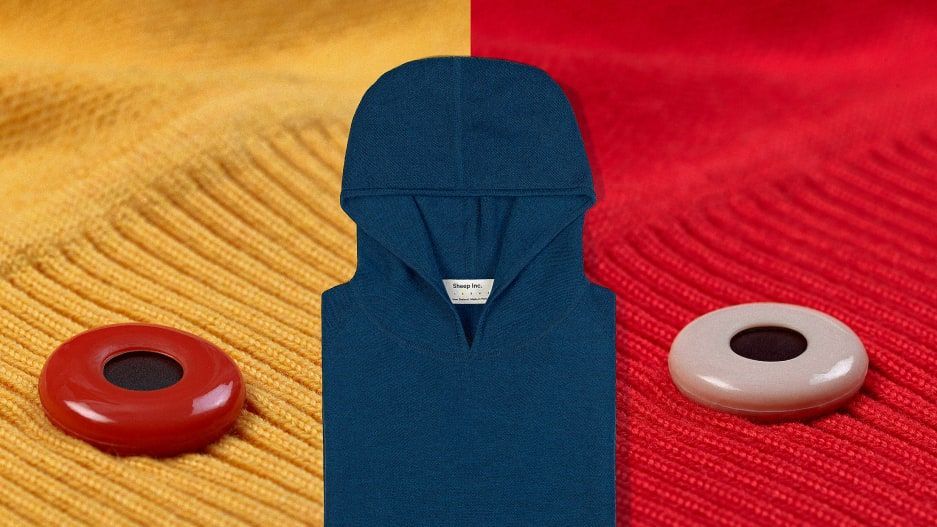
When a product is “carbon negative” it usually means the manufacturer has bought carbon offsets. But that doesn’t change the fact that making the product added carbon dioxide to the atmosphere. This is not the case for this new hoodie which removes more carbon from the atmosphere than it adds.
The whole process begins in New Zealand where the U.K based startup behind the hoodie called Sheep Inc sources its wool. Thanks to the farms using regenerative agriculture practices such as having the sheep “graze in ecologically strategic areas”, the making of the wool captures more CO2 that the farms emit.
“Over the last two years, we’ve been running a research project with the farms to really figure out what that final number is—how much impact does a kilogram of wool coming from a particular farm [have]?” says CEO and cofounder Edzard van der Wyck to Fast Company.
It turns out that the farms capture more than enough CO2 to cover the emissions in the other stages of the hoodie’s life cycle.
The yarn, after the wool’s been sheared, travels by boat to Germany to a mill that spins the yarn using renewable energy and then applies a treatment, free from harmful chemicals of course, that can help make the wool more durable so the hoodie lasts longer. At another factory, situated in Portugal, a knitter uses 3D-knitting machines which run on solar power to create the hoodies without any waste. Furthermore, because the machines create the hoodies without any extra materials used for thread and seams, this piece of clothing is completely biodegradable at the end of its life.
“You put our sweaters in the ground, and they’re gone within 6 to 12 months,” van der Wyck explains.
Sheep Inc uses electric vehicles, when possible, to deliver the hoodie to customers. They are also exploring new ways to further cut their carbon footprint, for example by feeding the sheep seaweed so they burp less methane.
“Our real aim of this,” he says, “is to show that with a rigorous interrogation of every single part of your supply chain and part of your business, brands can actually be part of the solution and not part of the problem.”
Picture: Sheep Inc via Fast Company




